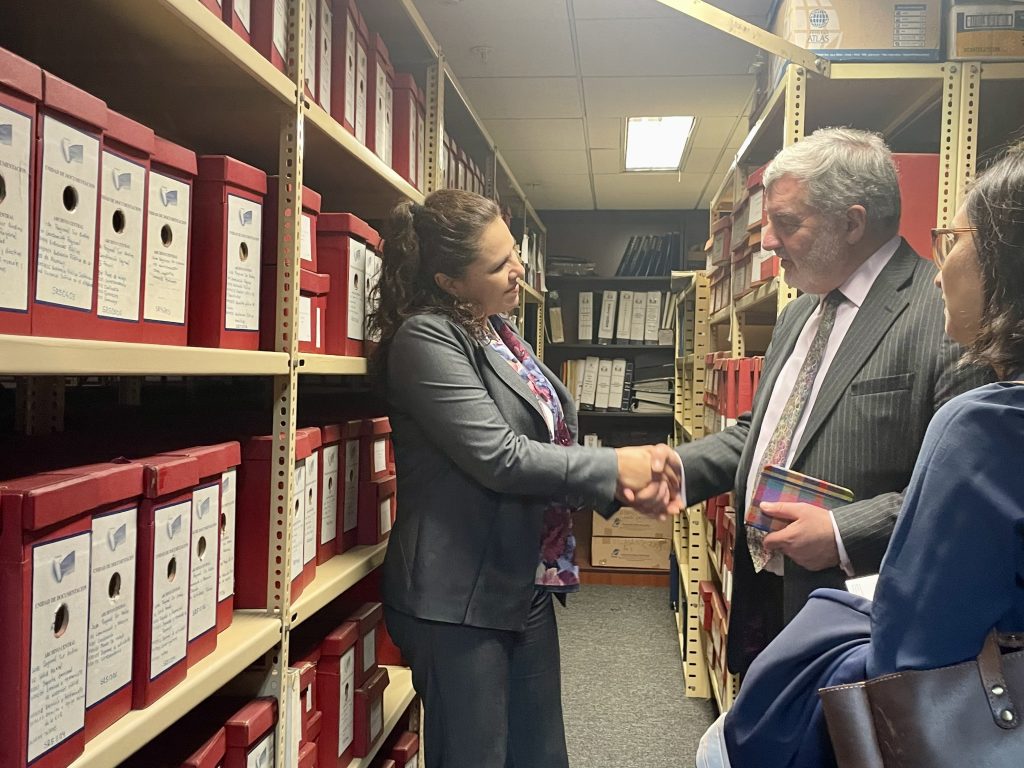Failure to fully implement the 2003 TRC Report contributes to the current crisis in Peru.
The 20th Anniversary of the publication of the Truth and & Reconciliation Report in Peru was on the 28th August 2023 and this anniversary saw the release of an important monitoring report by the UK’s Peru Support Group.
In 2004, after a visit to Peru, I co-authored, with John Battle MP, a former Foreign Office Minister in the UK, a report assessing the implementation of the Report of the 2003 Truth and Reconciliation Commission chaired by Dr Salomon Lerner, one year on.
Although I have been back a number of times since then, in May 2023 I returned to Peru as the current President of the UK-based Peru Support Group with, Ana Reyes-Hurt, the Co-ordinator of PSG, specifically to assess the situation in the country on the 20th Anniversary of the TRC Report.
In giving a summary of the 2023 report entitled – ‘Twenty Years On – forgetting and remembering’ – which we wrote on our return, I said –
“There has been change, with several positive developments in the passage of legislation and individual reparations, but crucial areas like reform of the culture of the security and justice sector and addressing the underlying causes of violence – deep-rooted discrimination, individual and communal poverty, and the lack of recognition and support for marginalised communities – have not seen sufficient attention, energy, and commitment. People who suffered injury and loss during the decades of violence have the right to create memorials for their loved ones and seek justice; they have the right to protest peacefully without being abused and attacked; and they also have the right to meaningful participation in the decision-making processes and economy of the country. Sadly, many people feel that in recent months things have been going backwards rather than getting better.”
Our report made three key recommendations –
Recommendation 1 – ‘Uniforms talk to uniforms’, and it would be very useful for officials in the security sector in Peru to be able to engage with security officials from other countries that have more fully addressed such post-conflict challenges in order that they could learn more of the processes and benefits of security sector reform, in both structures and procedures.
Recommendation 2: Unless the Government of Peru and other significant sectors, including the business community engage more fully in economic development and political representation for those communities that are most alienated and adversely affected by the conflict and its continuing causes and consequences, the problems are likely to continue to return in some form, as they have again recently.
Recommendation 3: Forgetting about those who come from communities that are socially, economically, or geographically marginalized is a recipe for long-term instability in any country, but forgetting about past traumas is also a serious mistake because the consequences come back, decade after decade and instead of disappearing, they become more difficult to resolve. Remembering and resolving the problems of the past is not an optional, but an essential task for a post-conflict society, otherwise it will return to conflict in some form. The maintenance of institutions such as the Lugar de la Memoria and the completion of the digitization and secure storage in both digital and hard copy form of the witness records created by the Truth and Reconciliation Commission are not just a vital link with the past, but essential for peace, stability, and reconciliation in the future. The Ombudsman’s Office has begun the essential task of digitization. It needs to be given the resources and encouragement to complete it as quickly as possible.
The Peru Support Group has been operating in the UK since the 1980s and I have been going to Peru since 1999. On this visit I and my colleague, Ana Reyes-Hurt, met with senior officials and ministers of the government including, the Head of the Council of Ministers (Prime Minister), the Fiscalia de la Nacion (Attorney General), the Minister and officials at the Ministry of Justice & Human Rights, senior officials at the Foreign Ministry, and the Defensoria del Pueblo (Peru’s Ombudsman). In addition, we met with representatives of various United Nations organizations working in Peru, including UNOHCHR, UNESCO and UNDP, with representatives of indigenous peoples’ organizations, with lawyers and others working on human rights and legal aspects of the Truth and Reconciliation Report, and with various businesspeople, journalists, politicians, academics, former diplomats and others. I also spoke at the University of Lima and at the Lugar de la Memoria.
The new 2023 PSG report can be accessed by clicking here
The previous 2004 PSG report can be accessed by clicking here
Follow up and further information are available from us at:
The Lord Alderdice, House of Lords, London SW1A 0PW – alderdicej@parliament.uk
Ana Reyes-Hurt, Co-ordinator of the Peru Support Group, coord.psg@gmail.com
Peru Support Group – https://perusupportgroup.org.uk/


